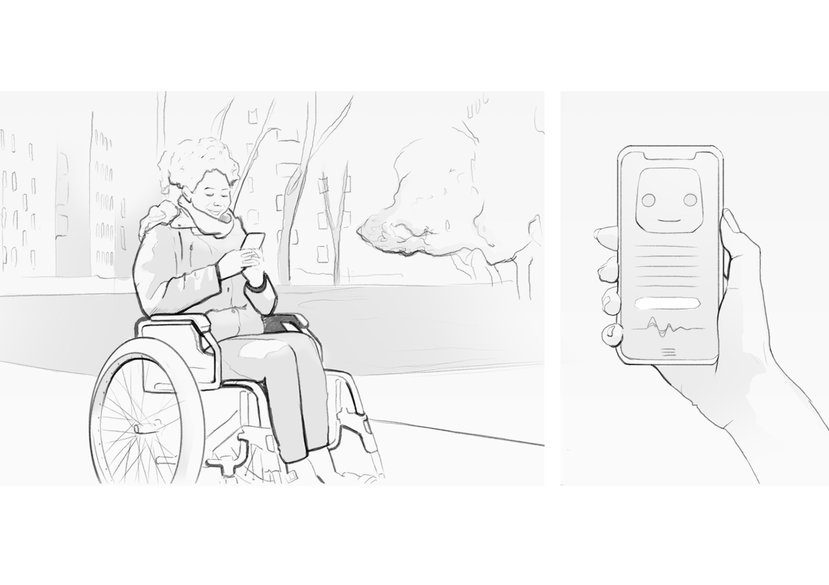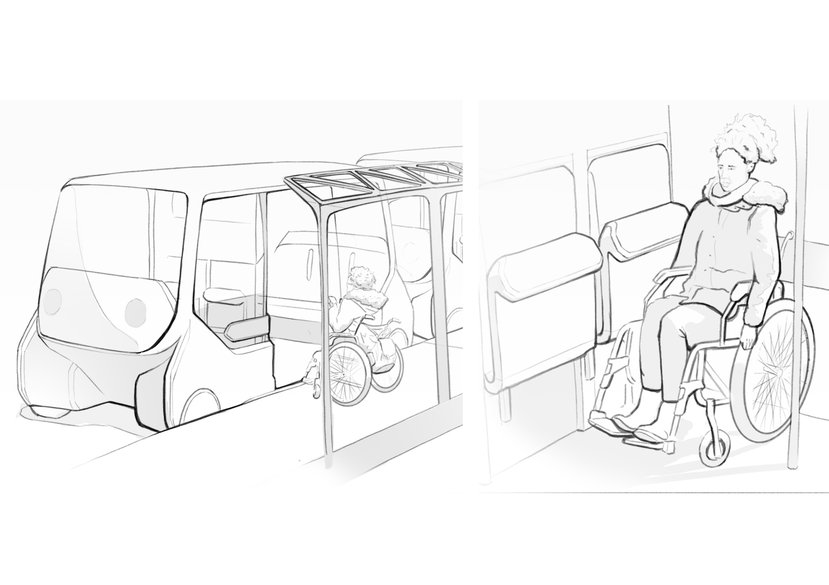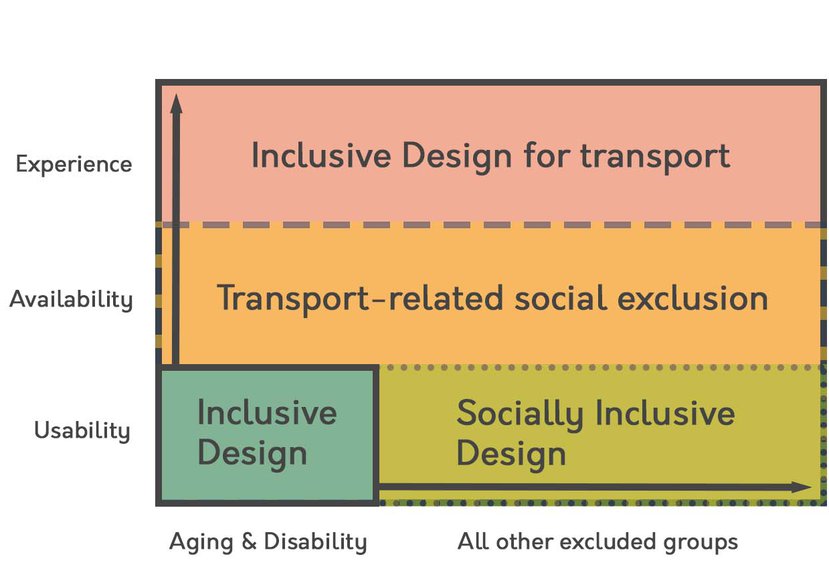
Inclusive Design for Shared Autonomous Vehicles
The introduction of Shared Autonomous Vehicles (SAVs) provides an opportunity for a number of groups that currently experience transport-related social exclusion to gain access to cost effective, flexible and on-demand mobility. It has even been suggested that members of transport excluded groups may be a significant early adopter group for SAV technologies. There is, however, the potential that SAVs may cause more transport exclusion if the needs of all excluded users are not considered during their design. This PhD explores how an Inclusive Design approach may be applied in the development of SAVs and SAV systems in order to counter key issues of transport exclusion.
An initial review of literature has explored the areas of Inclusive Design and Transport-related Social Exclusion and demonstrates a need for a Socially Inclusive Design approach to SAV design which examines the needs of a broad spectrum of groups who may be excluded due to factors relating to ageing, disability, gender, race/ cultural background, location and economic situation. This review goes on to explore each of these excluded groups in more detail by considering their current experiences of transport exclusion and their attitudes towards SAV technologies. Key outcomes from the review of literature are a conceptual model demonstrating 3 dimensions of transport exclusion: availability, usability and experience; and a selection of 5 common areas of transport exclusion: physical exclusion, digital & information exclusion, payment exclusion, service exclusion, and psychological exclusion.
A series of semi-structured interviews with transport inclusivity experts will be used to anticipate the potential barriers that may arise as a result of SAVs and to gain deeper insights into the mobility experiences of transport-excluded groups. Participatory design research activities with members of transport excluded groups will be used to gain a better understanding of these users’ attitudes towards SAVs and the ways in which SAVs may be able to overcome barriers to mobility.
Conclusions from these research activities will be used to develop SAV designs in collaboration with designers at Tata Motors Design UK, before these designs are tested and evaluated by participants from the initial research activities. The final outcomes of this project will be a series resources presenting these inclusive SAV designs, which can be used by designers, policy makers and SAV service operators in the development of more inclusive SAVs and SAV services.
Key details
School, Centre or Area
Area of expertise
Supervisors
Gallery
More about Robin
Biography
Robin is a transport designer and researcher with a particular interest in the design of vehicles and transport systems that democratise mobility. He recently graduated from Coventry University's Automotive and Transport Design Research (MDes) programme, where his final thesis focused on how the design and implementation of Shared Autonomous Vehicles can encourage users to adopt this new technology.
In 2018, Robin's research into the experience of passengers on high speed rail systems and the resulting design of a high speed train, won the 3rd place prize in the TRA Visions Young Researcher competition and was exhibited at the Transport Research Arena conference.
Robin has also spent time working on the design of hydrogen fuel cell electric vehicles at Microcab Industries and researching the opportunities for small businesses arising from the introduction of autonomous vehicles while working at WMG, Warwick University.
Degrees
Coventry University, 2015-2019 - Automotive and Transport Design (MDes)
Experience
Microcab Industries, 2019 - Design Intern
WMG, Warwick University, 2018 - Design Intern
Awards
Coventry University Degree Show 2019- Best Design (MDes)
TRA Visions Young Researcher Competition 2018- 3rd Prize, Rail Category
Funding
This PhD is funded through the London Arts and Humanities Partnership and is being completed in collaboration with Tata Motors Design UK.


